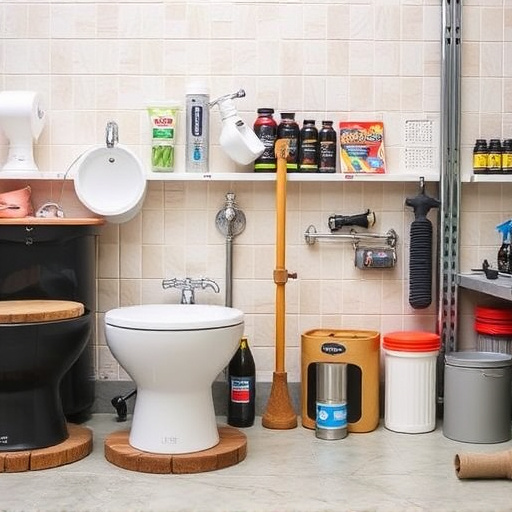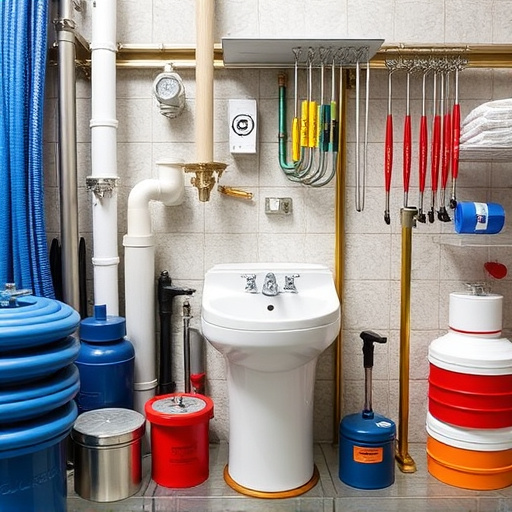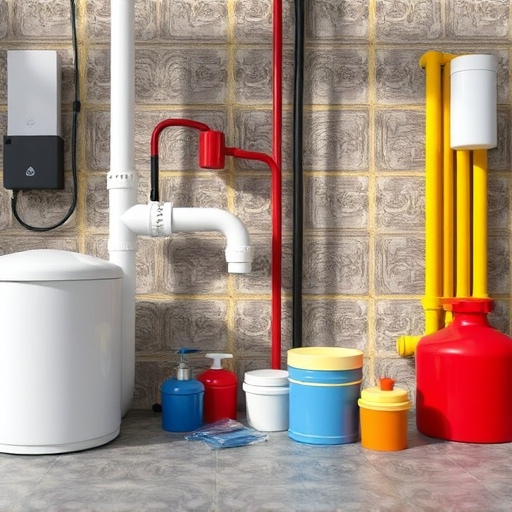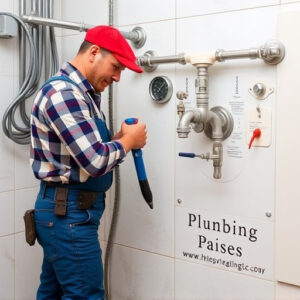Albury, New South Wales, relies on an extensive network of cast iron pipes and fittings for its robust water distribution systems. This durable material ensures reliable water flow and pressure, contributing to the city's thriving economy and high quality of life. Cast iron's corrosion resistance and longevity reduce maintenance needs, making it a staple in Albury's plumbing for centuries. Despite challenges with density and porosity, its versatility and compatibility make it a reliable choice for traditional systems. Advancements in manufacturing have improved installation ease and cost-effectiveness, securing cast iron's role as a vital component of Albury's infrastructure for the future.
“Albury, like many urban centers, relies on robust plumbing infrastructure. A key material in this network is cast iron, known for its durability and versatility. This article explores the extensive use of cast iron pipes and fittings within Albury’s infrastructure, highlighting their advantages, from strength to cost-effectiveness. We also delve into the evolution of cast iron technology and its potential future role in urban development, providing insights into a material that has stood the test of time.”
- Understanding Cast Iron Pipes and Fittings in Albury's Infrastructure
- Advantages and Disadvantages of Using Cast Iron in Plumbing Applications
- The Evolution and Future of Cast Iron Pipes and Fittings in Urban Development
Understanding Cast Iron Pipes and Fittings in Albury's Infrastructure

Albury, a vibrant city nestled in the heart of New South Wales, boasts an extensive network of infrastructure that serves as the backbone of its daily operations. Among this critical infrastructure are cast iron pipes and fittings—a testament to the region’s commitment to reliable and durable water distribution systems. Cast iron has been a game-changer in Albury’s plumbing landscape, offering both strength and versatility for various applications. From main water supply lines to localised distributions networks, these pipes have stood the test of time, ensuring consistent water flow and pressure across the city.
The integration of cast iron in Albury’s infrastructure highlights the material’s resilience against corrosion, making it an ideal choice for long-term use. This durability not only translates to cost savings but also reduces maintenance requirements over time. As a result, Albury residents enjoy efficient and dependable water access, contributing to the city’s thriving economy and overall quality of life.
Advantages and Disadvantages of Using Cast Iron in Plumbing Applications

Cast iron has been a trusted material in plumbing applications for centuries, offering both advantages and disadvantages that make it a popular yet nuanced choice, especially in regions like Albury. One of its key strengths is durability; cast iron pipes and fittings are known for their resistance to corrosion and long-lasting performance, even under high pressure. This makes them an excellent option for robust plumbing systems designed to withstand the test of time. Additionally, cast iron’s ability to maintain consistent temperatures throughout its structure ensures reliable heat distribution in hot water systems, making it a preferred choice for residential and commercial properties alike.
However, there are considerations that homeowners and plumbers should keep in mind. Cast iron is denser and heavier than other modern plumbing materials, which can lead to increased installation costs and challenges in tight spaces. Its porosity also means it requires careful handling during installation to avoid leaks, as even the smallest imperfection can cause water damage over time. Despite these drawbacks, cast iron’s versatility and compatibility with various joining methods make it a reliable choice for traditional plumbing systems, offering long-term benefits that outweigh the initial considerations.
The Evolution and Future of Cast Iron Pipes and Fittings in Urban Development

Cast iron pipes and fittings have played a significant role in urban development for centuries, with their robust nature making them a reliable choice for water supply and drainage systems. In Albury, Australia, these pipes have been a cornerstone of the city’s infrastructure, enduring rigorous testing of time and climate. Their evolution has seen advancements in manufacturing techniques, leading to improved durability, ease of installation, and cost-effectiveness.
Looking ahead, while modern materials like PVC and polyethylene are gaining traction, cast iron remains indispensable for specific applications. In Albury’s context, its harsh environment and demanding water management needs ensure a continued demand for this classic material. Future developments may see further innovation in casting techniques, enhancing their already impressive capabilities, and ensuring they remain a vital component of urban infrastructure for years to come.
Cast iron pipes and fittings have significantly contributed to Albury’s infrastructure development, offering durable and reliable solutions for plumbing applications. While they present certain disadvantages, such as weight and resistance to corrosion, their advantages—including strength, cost-effectiveness, and longevity—make them a preferred choice in many urban developments. As technology advances, the evolution of cast iron pipes continues, promising improved performance and enhanced sustainability for future Albury projects.
